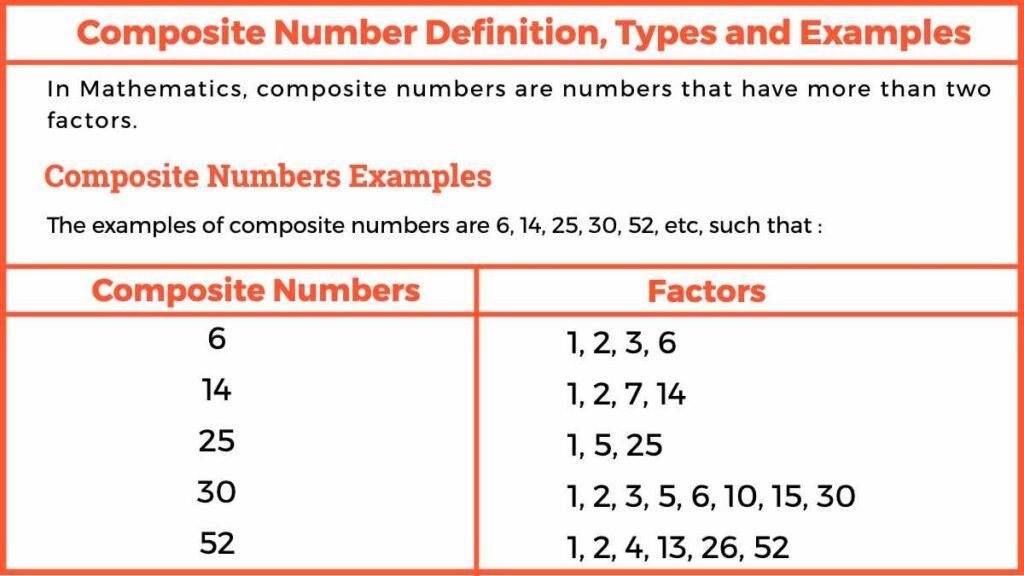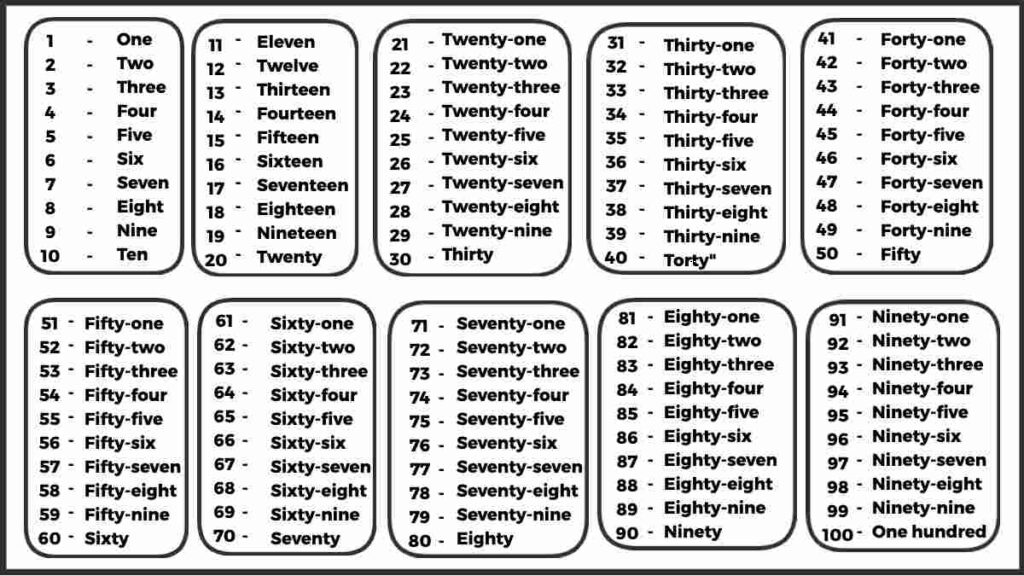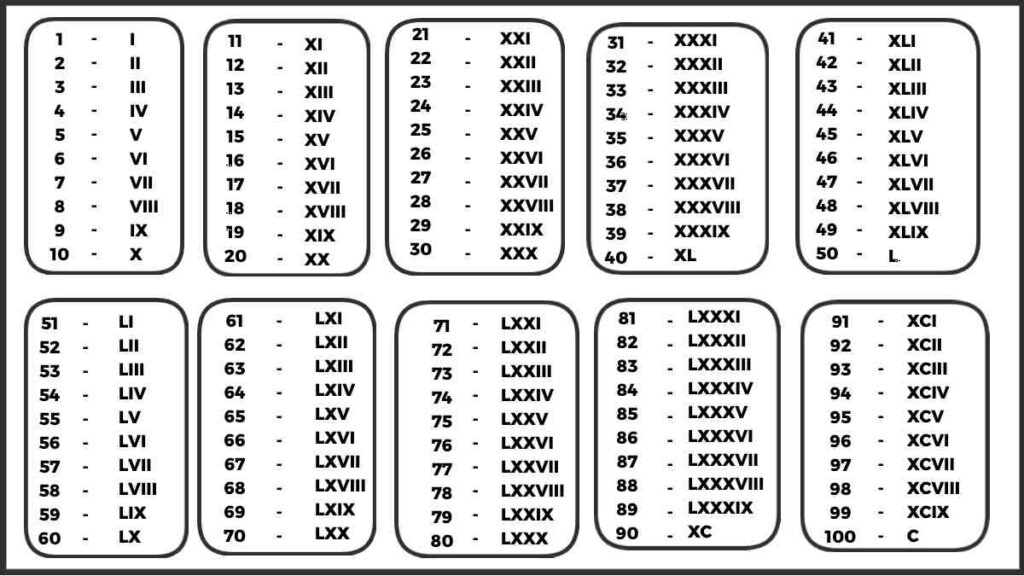If you are going to read what is called a Composite Number on this page, then definitely read the article completely.
On the previous page, we have shared information about Odd Numbers, so do read odd numbers.
Let us read and understand the properties and rules of what is called a Composite Number on this page.
What Are Composite Numbers?
In Mathematics, composite numbers are numbers that have more than two factors.
The numbers which can be generated by multiplying the two smallest positive integers and contain at least one divisor other than the number ‘1’ and itself are known as composite numbers. These numbers always have more than two factors.
Fact : Any Even Number which is greater than 2 is a composite number.
Is 0 a Composite Number?
Zero (0) is considered as neither prime nor a composite number because it does not have any factors.
Composite Numbers Examples
The examples of composite numbers are 6, 14, 25, 30, 52, ETC, such that :
| Composite Numbers | Factors |
| 6 | 1, 2, 3, 6 |
| 14 | 1, 2, 7, 14 |
| 25 | 1, 5, 25 |
| 30 | 1, 2, 3, 5, 6, 10, 15, 30 |
| 52 | 1, 2, 4, 13, 26, 52 |
In all the above examples, we can see the composite numbers have more than two factors. There are a number of composite numbers we can list out of a set of Natural Numbers from 1 to 1000 or more. Let us see the list of composite numbers in the next section.
Properties of Composite Numbers
The properties of composite numbers are easy to remember.
- Composite Numbers have more than two factors
- Composite Numbers are evenly divisible by their factors
- Each Composite Number is a factor of itself
- The Smallest Composite Number is 4
- Each composite number will include at least two prime numbers as its factors (EX. 10 = 2 x 5, where 2 and 5 are prime numbers)
- Composite numbers are divisible by other Composite Numbers also
List of Composite Numbers
Here is the list of composite numbers from 1 to 100 in Math. Students can keep a note of this and also try to write the numbers beyond 100 for practice, such composites from 1 to 200 or till 500.

Composite Numbers 1 to 200

The positive integers having more than two factors are composite numbers. The list of Composite numbers from 1 to 200 are given below in the table.
| 4, 6, 8, 9, 10, 12, 14, 15, 16, 18, 20, 21, 22, 24, 25, 26, 27, 28, 30, 32, 33, 34, 35, 36, 38, 39, 40, 42, 44, 45, 46, 48, 49, 50, 51, 52, 54, 55, 56, 57, 58, 60, 62, 63, 64, 65, 66, 68, 69, 70, 72, 74, 75, 76, 77, 78, 80, 81, 82, 84, 85, 86, 87, 88, 90, 91, 92, 93, 94, 95, 96, 98, 99, 100, 102, 104, 105, 106, 108, 110, 111, 112, 114, 115, 116, 117, 118, 119, 120, 121, 122, 123, 124, 125, 126, 128, 129, 130, 132, 133, 134, 135, 136, 138, 140, 141, 142, 143, 144, 145, 146, 147, 148, 150, 152, 154, 155, 156, 157, 158, 159, 160, 162, 164, 165, 166, 168, 170, 172, 174, 175, 176, 177, 178, 180, 182, 184, 185, 186, 187, 188, 189, 190, 192, 194, 195, 196, and 198. |
How to Find the Composite Number?
The procedures to find whether a given number is prime or composite :
Find all the factors of the positive integer
A number is said to be prime if it has only two factors, 1 and itself
If the number has more than two factors, then it is a composite
Example : Find if 14 is a composite number. Let us find the factors of 14.
14 ÷ 1 = 14
14 ÷ 2 = 7
14 ÷ 7 = 2
14 ÷ 14 = 1
As we can see, the factors of 14 are 1, 2, 7 and 14, so it is a composite number.
Types of Composite Numbers
There are two main types of composite numbers in Maths which are:
- Odd Composite Numbers or Composite Odd Numbers
- Even Composite Numbers or Composite Even Numbers
1. Odd Composite Numbers
All the odd integers which are not prime are odd composite numbers. Examples of composite odd numbers are 9, 15, 21, 25, 27, 31, etc.
2. Even Composite Numbers
All the even integers which are not prime are even composite numbers. Examples of even composite numbers are 4, 6, 8, 10, 12, 14, 16, etc.
Difference Between Prime and Composite Numbers
The difference between the prime numbers and the composite numbers in Maths are listed below:
| Prime Numbers | Composite Numbers |
|---|---|
| It can only be divided by 1 and itself, thus have only two factors. | It has more than two factors (1 and itself). |
| It can only be written as a product of two numbers. | It can be written as the product of two or more numbers |
| Example : 5 has factors are 1 and 5 | Example : 4 has factors are 1, 2 and 4 |
Prime Factorization of Composite Numbers
The list of composite numerals from 1 to 50 are given here with their prime factorization. You can see here how the composites are factorized in prime numbers. Check the below table to understand better.
With the help of this table, you can also find composites beyond 50 with their prime factorization.
| Composite Numbers | Prime Factorization |
|---|---|
| 4 | 2 × 2 |
| 6 | 2 × 3 |
| 8 | 2 × 2 × 2 |
| 9 | 3 × 3 |
| 10 | 2 × 5 |
| 12 | 2 × 2 × 3 |
| 14 | 2 × 7 |
| 15 | 3 × 5 |
| 16 | 2 × 2 × 2 × 2 |
| 18 | 2 × 3 × 3 |
| 20 | 2 × 2 × 5 |
| 21 | 3 × 7 |
| 22 | 2 × 11 |
| 24 | 2 × 2 × 2 × 3 |
| 25 | 5 × 5 |
| 26 | 2 × 13 |
| 27 | 3 × 3 × 3 |
| 28 | 2 × 2 × 7 |
| 30 | 2 × 3 × 5 |
| 32 | 2 × 2 × 2 × 2 × 2 |
| 33 | 3 × 11 |
| 34 | 2 × 17 |
| 35 | 5 × 7 |
| 36 | 2 × 2 × 3 × 3 |
| 38 | 2 × 19 |
| 39 | 3 × 13 |
| 40 | 2 × 2 × 2 × 5 |
| 42 | 2 × 3 × 7 |
| 44 | 2 × 2 × 11 |
| 45 | 3 × 3 × 5 |
| 46 | 2 × 23 |
| 48 | 2 × 2 × 2 × 2 × 3 |
| 49 | 7 × 7 |
| 50 | 2 × 5 × 5 |
Solved Problems on Composite Numbers
Example 1. Find if 328 is a composite number.
Solution : The factors of 328 are 1, 2, 4, 8, 41, 82, 164, 328.
Therefore, 328 is a composite number.
Example 2. What is the prime factorization of 60?
Solution : The prime factorization of 60 is:
60 = 2 × 2 × 3 × 5.
Example 3. List out the composite numbers from the given set of numbers.
2, 4, 9, 11, 21, 31, 44, 53, 67, 88, 101, 108.
Solution : The composite numbers are: 4, 9, 21, 44, 88, 108.
Example 4. Find the product of first 5 composite numbers.
Solution : The first 5 composite numbers are 4, 6, 8, 9, 10.
Hence, the product of first 5 composite numbers = 4 × 6 × 8 × 9 × 10
= 17280
Therefore, the product of first five composite numbers is 17280.
FAQ
Ans. 4, 6, 8, 9, 10, 12, 14, 15, 16, 18, 20, 21, 22, 24, 25, 26, 27, 28, 30, 32, 33, 34, 35, 36, 38, 39, 40, 42, 44, 45, 46, 48, 49, 50, 51, 52, 54, 55, 56, 57, 58, 60, 62, 63, 64, 65, 66, 68, 69, 70, 72, 74, 75, 76, 77, 78, 80, 81, 82, 84, 85, 86, 87, 88, 90, 91, 92, 93, 94, 95, 96, 98, 99, 100.
Ans. A composite number is a natural number or a positive integer which has more than two factors. For example, 15 has factors 1, 3, 5 and 15, hence it is a composite number.
Ans. 7 is not a composite number because 7 doesn’t have more than 2 factors.
Ans. No, 2 is not a composite number,
Ans. No, 12 is not a prime number.
Ans. Composite Numbers are those numbers which have more than two factors i.e 1 and the number itself. Example- 4,6, 9, 12,15,45 etc.
| Read More : | ||
| Natural Numbers | Even Numbers | Odd Numbers |
| Whole Number | Integer Number | Prime Numbers |
| Irrational Numbers | Real Numbers | Unreal Numbers |
Hope you have liked the information about Composite Number.
Comment with any questions related to Composite Number Thanks.
Hope you have liked the information about Composite Number, if you liked this article, then definitely share it with your friends.


